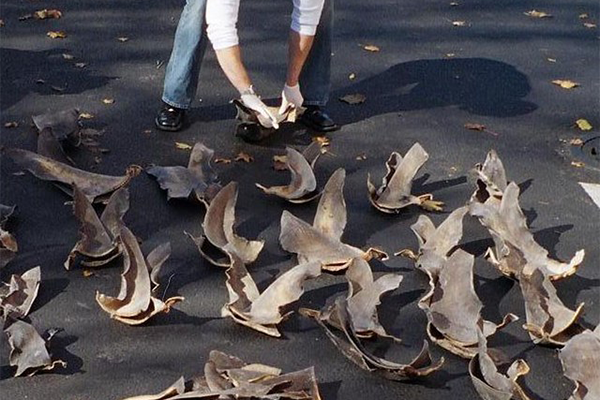
In response to a European citizens’ initiative, the European Commission is exploring new ways to address the international trade of loose shark fins.
The “Stop finning – Stop the trade” initiative received support from more than one million citizens and was submitted to the Commission in January 2023. It calls for an end to the trade of loose shark fins, as well as extending Regulation (EU) No 605/2013 that bans shark finning to also prohibit the import, export and transit of loose shark fins.
“Sharks play a vital role in maintaining the balance of marine ecosystems and they are vulnerable to human activities,” wrote the Commission in a press release. “Despite efforts to improve the conservation of sharks in recent years, many populations of sharks are in a critical situation – over one third of shark species are threatened with extinction (i.e. considered critically endangered, endangered or vulnerable). The Commission acknowledges that shark finning is one of the main threats for the conservation of these species.”
In response to the initiative, the Commission will take the following actions:
The Commission has committed to better enforce the EU’s traceability measures along the entire value chain: control of fishing at sea, shark products from landing to consumer, consumer information and prevention and redress of illegal trade. It will ensure the collection and reporting of complete and reliable information by fishermen and Member States’ authorities on all these aspects by working together with Member States and Interpol. Lastly, the Commission will step up the EU’s international action, as the trade in shark fins is global.
“The objectives will be to strengthen the effective implementation of conservation and management measures for shark species and advocate for a worldwide ban of shark finning; encourage the reduction of demand for shark fins; and fight against shark fins trafficking,” wrote the Commission.
The Commission will work with EU Member States, within the framework of CITES (Convention on International Trade in Endangered Species of Wild Fauna and Flora), regional fisheries management organizations, the UN Food and Agriculture Organization and with third countries bilaterally.
Read more here.
Follow the Advocate on Twitter @GSA_Advocate
… please consider supporting GSA’s mission to advance responsible seafood practices through education, advocacy and third-party assurances. The Advocate aims to document the evolution of responsible seafood practices and share the expansive knowledge of our vast network of contributors.
By becoming a Global Seafood Alliance member, you’re ensuring that all of the pre-competitive work we do through member benefits, resources and events can continue. Individual membership costs just $50 a year.
Not a GSA member? Join us.
Responsible Seafood Advocate
[103,114,111,46,100,111,111,102,97,101,115,108,97,98,111,108,103,64,114,111,116,105,100,101]
Fisheries
The extinction risk of sharks and rays can be significantly reduced with effective fisheries management and policies, says a Virginia Tech study.
Fisheries
Research shows that SharkGuard, an electric-pulsed device that attaches to longline fishing rigs, can significantly reduce shark bycatch.
Fisheries
With sharks and rays critically endangered, the government of Bangladesh has amended legislation to reduce the extinction risk of the species.
Fisheries
New study suggests conservation and fisheries management help tunas and billfishes recover, but shark biodiversity continues to decline.
The Responsible Seafood Advocate supports the Global Seafood Alliance’s (GSA) mission to advance responsible seafood practices through education, advocacy and third-party assurances.
Learn More
Javascript is currently disabled in your web browser. For a better experience on this and other websites, we recommend that you enable Javascript.
